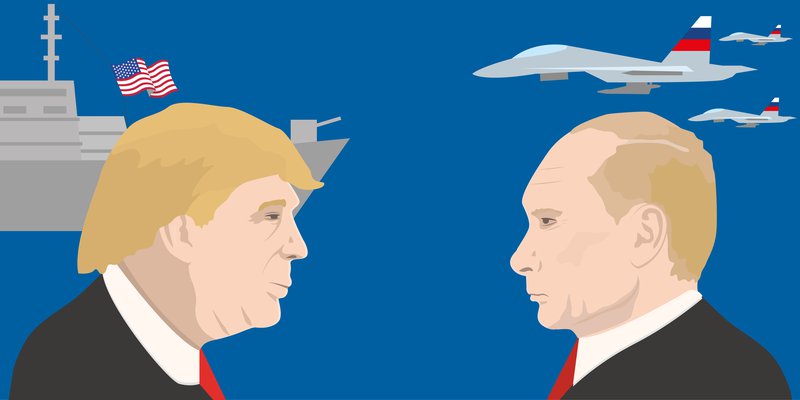Is Putin's Russia Ready for Trump's America?
Donald Trump’s election as President of the United States may not be as good for Vladimir Putin as many have assumed.
Article/Op-Ed in New Yorker

Shutterstock.com
Nov. 14, 2016
Joshua Yaffa wrote for the New Yorker about how President Trump will affect Russia:
Last Wednesday morning, members of the Russian parliament broke into spontaneous applause. “Colleagues three minutes ago, Hillary Clinton admitted her defeat in U.S. Presidential elections, and just this second Trump began his speech as President-elect,” a Duma deputy named Vyacheslav Nikonov announced. The hall was filled with a long and sustained cheer. Vladimir Zhirinovsky, the nationalist buffoon who is a particularly vulgar yet ultimately feckless Russian version of Trump, threw a party with champagne in his Duma office. Not long after, Vladimir Putin sent Trump a telegram of congratulations, saying that he welcomed a “constructive dialogue” with the new U.S. President, based on “principles of equality, mutual respect, and genuine consideration.”
For Putin, Trump’s victory is an extraordinary turn of events. It wasn’t just that Trump had spoken admiringly of Putin, and that he appeared to share his basic calculus of power, in which force is what matters, and neither the law, nor the media, nor any political norm acts as a constraint on the leader and his will. Trump’s transactional sense of policy, too, which is devoid of a sense of history or normative value, led him to positions that read like Putin’s wish list: he spoke of recognizing Russia’s annexation of Crimea, called into question U.S. commitments to NATO, and dismissed criticism of Putin’s authoritarian rule. If Hillary Clinton was the embodiment of the assertive—often hubristic—strain of neoliberal interventionism, then, as the Kremlin saw it, Trump was the opposite: an incurious populist prone to isolationism and short-term pragmatism. That Trump, who wasn’t expected to win, might wreak havoc even in defeat on the strength and durability of U.S. institutions was all the better. Putin famously called him yarkiy, a tricky word that means colorful, gaudy, or bright, in the way that the neon lights shine from the marquee of one of Trump’s casinos. Trump received hagiographic coverage in Russian state media, which painted him as a heroic iconoclast going up against a rigged American system. That message was for Russian audiences, not American ones, meant to prop up the image of an external enemy in the form of Obama and Clinton, the inheritor of the status quo.